I’m supposed to be working on my new YA book Ugly (plus the other one that’s under a pen name), but ask me if I’m doing either of these things.
Nope, I’m not. I mentioned being stuck a few weeks ago, and I sort of still am. But I replotted the pen name book and just need to get back to Ugly, but instead I’m working on some short stories. It’s the Shiny New Idea.
As I’ve mentioned, I wrote one called “Now Would Be Good” that’s about a girl in her junior year of high school. But now I want to do a whole series about her and I spent most of last Sunday at Starbucks with a friend plotting five other stories out. One’s about her in ninth grade and the others follow her from junior year through right before she goes to college. I’m pretty excited about these stories because I really like the premise of each of them. And they will naturally tie together.
I’m going to self-publish the collection. No one will buy it, but once I have a book published traditionally, there will already be another book for people who liked that one to buy. That’s the plan, anyway.
Speaking of traditional publishing, I haven’t had any more movement on Finding Frances. I do have several people at work reading it, which is a little weird. Hopefully they don’t hate it. Since they wanted to read it electronically, I designed a cover to go with it:
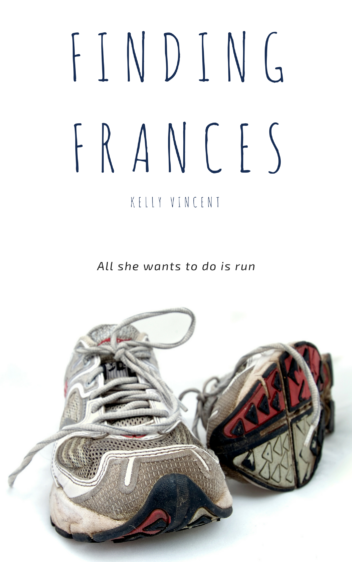
So many people have read this book. I look at the acknowledgments section of other novels, and authors thank their one critique group and a handful of beta readers (if that many). I’ll never be able to thank everyone who’s helped along the way.
Sadie Speaks is still idle at the moment, too. I just don’t know what to do with that one. It’s difficult.
A couple weeks ago, I submitted “Now Would Be Good” to Cicada magazine. I recently found out that they’re going electronic only. I still prefer paper, but I don’t know any other markets for YA short fiction. So now that story’s out for a contest and a magazine. We’ll see what happens.


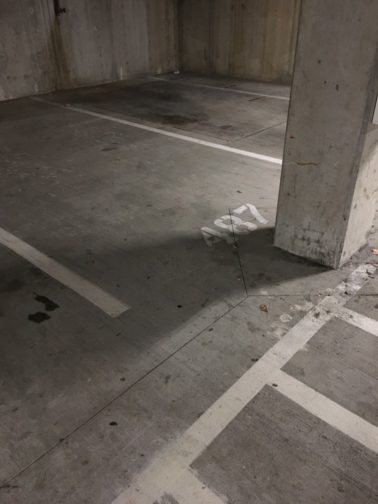
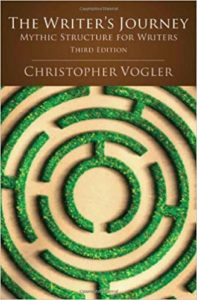 On Thursday I did a master class with Christopher Vogler, who interpreted Joseph Campbell’s anthropological studies of mythology and stories into a pseudo-formula for writers many years ago. It eventually came out as a book called The Writers Journey: Mythic Structure for Writers, which provides a solid structure framework called the Hero’s Journey, which writers can use to construct a satisfying story. There’s some controversy about the true universality of this story structure (some feminists claim it only applies to men’s stories, for instance). My opinion is that while it is not the only possible good story structure, it can be a useful guide for almost any story. But there are definitely other story structures out there. Regardless, his class was good—Vogler’s a good speaker and he’s very emotionally involved in stories and his work with them, which really draws in the audience.
On Thursday I did a master class with Christopher Vogler, who interpreted Joseph Campbell’s anthropological studies of mythology and stories into a pseudo-formula for writers many years ago. It eventually came out as a book called The Writers Journey: Mythic Structure for Writers, which provides a solid structure framework called the Hero’s Journey, which writers can use to construct a satisfying story. There’s some controversy about the true universality of this story structure (some feminists claim it only applies to men’s stories, for instance). My opinion is that while it is not the only possible good story structure, it can be a useful guide for almost any story. But there are definitely other story structures out there. Regardless, his class was good—Vogler’s a good speaker and he’s very emotionally involved in stories and his work with them, which really draws in the audience.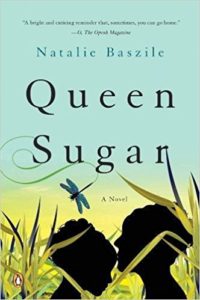 Thursday night, the keynote speaker was Natalie Baszile, author of Queen Sugar. I admit I hadn’t heard of this book, though I’ve bought it and intend to read it because it sounds good. Oprah even picked it up and made a TV show out of it, which is apparently quite good. I know a lot of people snootily look down on Oprah, but I think she generally has good taste in books. Anyway, Natalie’s talk was all about her journey to publication, which was… long. She peppered the speech with family stories, some of which were funny (the box of Louisiana delicacies that were shipped every year, only to arrive as a box of rotting meat) and some of which weren’t (her father growing up in Louisiana and experiencing the small-town embedded racism there).
Thursday night, the keynote speaker was Natalie Baszile, author of Queen Sugar. I admit I hadn’t heard of this book, though I’ve bought it and intend to read it because it sounds good. Oprah even picked it up and made a TV show out of it, which is apparently quite good. I know a lot of people snootily look down on Oprah, but I think she generally has good taste in books. Anyway, Natalie’s talk was all about her journey to publication, which was… long. She peppered the speech with family stories, some of which were funny (the box of Louisiana delicacies that were shipped every year, only to arrive as a box of rotting meat) and some of which weren’t (her father growing up in Louisiana and experiencing the small-town embedded racism there).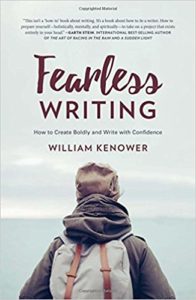 On Saturday, I went to several different sessions, mostly about craft. One was on hooks and how important they are, especially at the end of scenes and chapters. I went to a session about writing nonfiction for kids, something I’ve thought about dipping my toes into. I went to another session on writing diversity, which had a bunch of great tips. Sunday I went to a session called Fearless Marketing, with Bill Kenower,
On Saturday, I went to several different sessions, mostly about craft. One was on hooks and how important they are, especially at the end of scenes and chapters. I went to a session about writing nonfiction for kids, something I’ve thought about dipping my toes into. I went to another session on writing diversity, which had a bunch of great tips. Sunday I went to a session called Fearless Marketing, with Bill Kenower,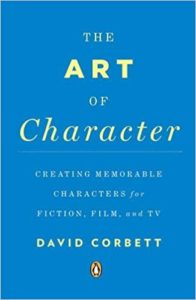 Another nice thing that happened that same day is that one of my former writing instructors offered to do a critique of a chapter or story of mine, all because I recommended a book on character that he ended up using in his summer writing class. It’s really popular with his students and he felt like he owed me a favor. I’m not sure he does, but I’ll probably take him up on that. I’ve got a short story I’m working on, which I may post here eventually. If you’re curious, the book is The Art of Character: Creating Memorable Characters for Fiction, Film, and TV by David Corbett.
Another nice thing that happened that same day is that one of my former writing instructors offered to do a critique of a chapter or story of mine, all because I recommended a book on character that he ended up using in his summer writing class. It’s really popular with his students and he felt like he owed me a favor. I’m not sure he does, but I’ll probably take him up on that. I’ve got a short story I’m working on, which I may post here eventually. If you’re curious, the book is The Art of Character: Creating Memorable Characters for Fiction, Film, and TV by David Corbett.